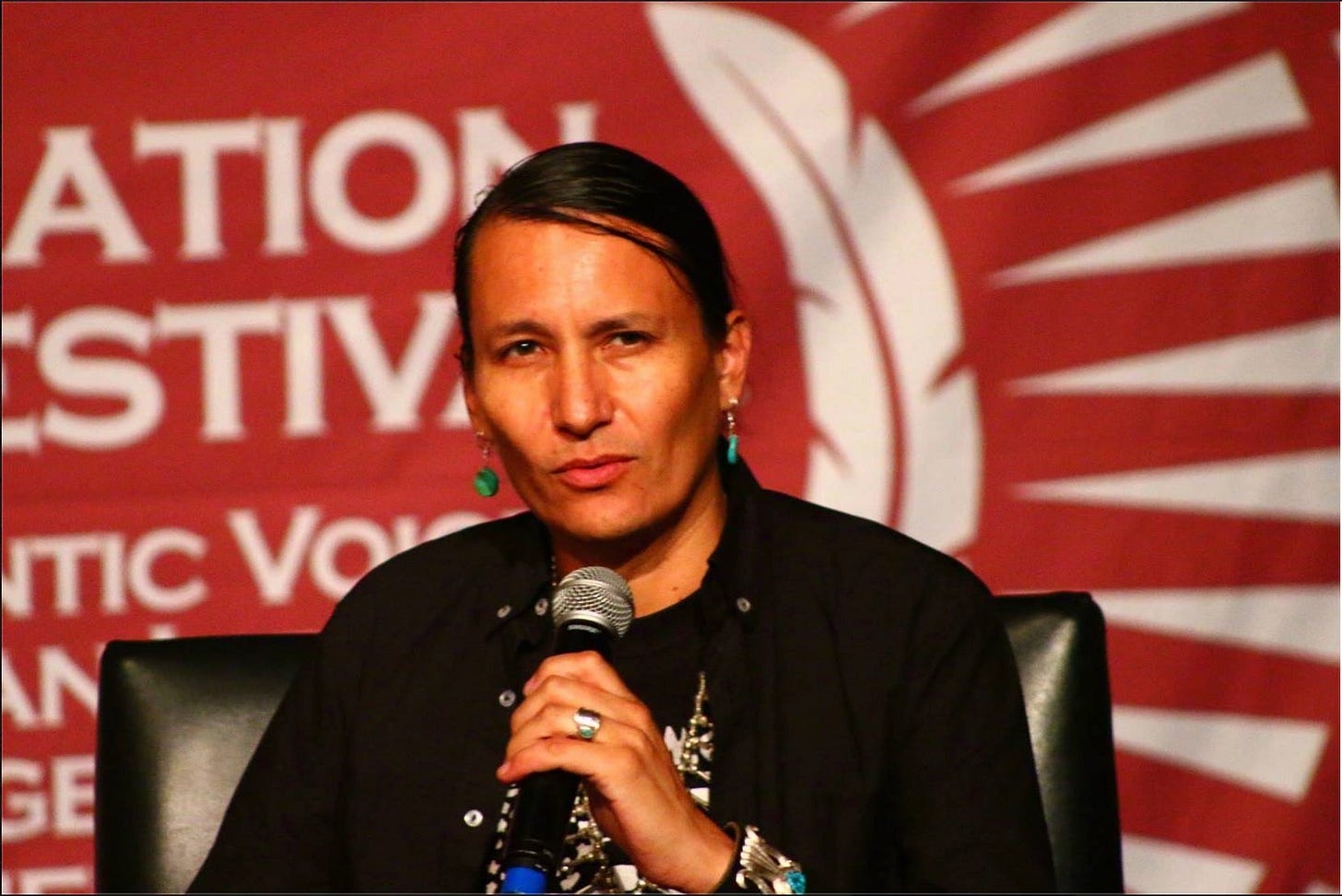Indigenous activist Klee Benally is being honored with the Nuclear-Free Future Award for his work against uranium mining in his native Arizona. Posthumously, because Benally joined his ancestors on December 30, 2023. He was 48 years old.
Klee Benally, a member of the Diné-Navajo tribe from Arizona, vehemently opposed the expansion of the Snowbowl ski resort near his home in Flagstaff. He also opposed the use of treated wastewater for snowmaking because it would destroy the local ecosystem. In addition, 13 indigenous tribes consider the San Francisco Peaks, which are located in the area, to be sacred. Benally also protested against pumice and uranium mining and transportation in the region and campaigned for the clean-up of the Cold War-era mines.
Benally was born on October 6, 1975 in Black Mesa, Arizona, on the Navajo reservation near Flagstaff. His father was a traditional medicine man, his mother is a folk musician and activist of Russian-Polish-Jewish descent. The son grew up with his father's traditions. During his childhood, the family was forcibly relocated due to a land dispute, and at 14 he founded the punk rock band Blackfire with his sister and brother. The band mixed traditional Navajo songs and music with protest songs about the oppression of the indigenous population. The multi-talented musician was also an author, documentary filmmaker, traditional dancer and board game designer. He campaigned for indigenous homeless people as well as criticizing the hostility towards black people that he felt persisted in many indigenous communities.
The land of his people, the Diné-Navajo, near the famous Grand Canyon is littered with abandoned uranium mines. From 1944 to 1986, 3.9 million tons of uranium ore were blasted out of the mountains and plains of the region and mined - for the US government's nuclear activities. More than 1,000 mines were closed, but the mining companies never properly disposed of their radioactive waste, leading to skyrocketing rates of cancer and other health problems, US television station Democracy Now reported. “It's really a slow genocide of the people - not just the indigenous people of this region. There are estimated to be more than ten million people living within 50 miles of abandoned uranium mines,” Benally told the reporter.
Many other indigenous activists and communities stood by him in his protest for decades. Nevertheless, Energy Fuels began mining uranium at the Pinyon Plain Mine in the Grand Canyon in December 2023. What's more, in June 2024, then US President Joe Biden signed the Accelerating Deployment of Versatile, Advanced Nuclear for Clean Energy Act, or ADVANCE ACT for short, “to promote the development and deployment of advanced nuclear reactors in the United States”. The Department of Energy released a budget of 2.7 billion dollars to purchase low enriched uranium from domestic mines. The German “Indigenous & Human Rights Action Group” reported in a newsletter that the budget originally earmarked for the cleanup of former uranium mines on indigenous lands has been diverted to the new nuclear energy revival. According to the action group, 100 million dollars have been canceled.
The Nuclear-Free Future Award, which he is receiving posthumously today, was established by the German author and journalist Claus Biegert and has been presented annually at various locations around the world since 1998. 2025 in New York City. The event takes place during the Third Meeding of State Parties to the Treaty on the Prohibition of Nuclear Weapons March 3-7 at the United Nations. In addition to Benally, personalities from Brazil, India, the USA and Zimbabwe will be honored. Co-organizers are the associations Beyond Nuclear and IPPNW Germany.
This text was first published in German on my website and translated by me.



